Related Research Articles
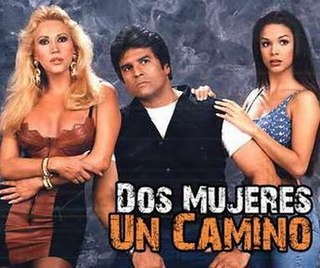
Dos mujeres, un camino is a Mexican neo-noir telenovela produced by Emilio Larrosa for Televisa in 1993–1994. This production was exhibited in 47 countries, including Indonesia, had high viewer ratings, and has been described as one of Televisa's most successful telenovelas.
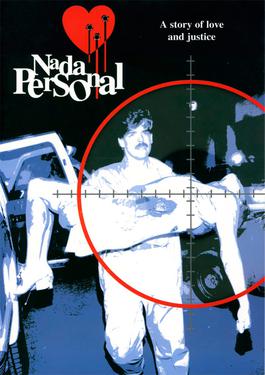
Nada personal is a Mexican telenovela, which was broadcast in 1996. It was the first produced by Argos Comunicación for TV Azteca and began on May 20 of that year on TV 7. It was the production that put the network on the radar of the television audience in Mexico. It was the first telenovela of Ana Colchero after her leave from Televisa and the first telenovela that discussed political topics. She played the role of Camila but had to be replaced by Christianne Gout when Colchero had issues with the network. It was directed by Antonio Serrano, director of Teresa and the blockbuster film Sexo, pudor y lágrimas.

Angélica Espinoza Stransky, known as Angélica Aragón, is a Mexican film, television and stage actress and singer. She is daughter of the Mexican composer José Ángel Espinoza "Ferrusquilla". She is recognized for her performances in various Mexican film productions such as Cilantro y perejil (1997), Sexo, pudor y lágrimas (1999) and El crimen del Padre Amaro (2002) and in diverse American productions like A Walk in the Clouds (1995) and Dirty Dancing: Havana Nights (2002) among others. She is also famous for having starred in two famous Mexican telenovelas: Vivir un poco (1985) and Mirada de mujer (1997).

Barrera de amor is a Mexican telenovela produced by Ernesto Alonso for Televisa in 2005.
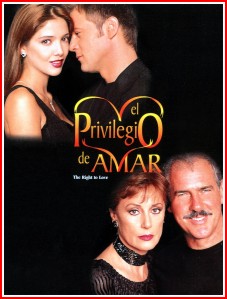
El privilegio de amar is a Mexican telenovela produced by Carla Estrada for Televisa. It aired on Canal de las Estrellas from July 27, 1998 to February 26, 1999. El privilegio de amar is a remake of the 1985 Venezuelan telenovela Cristal. El privilegio de amar is the highest-rated television program in Mexico to date; it registered an average of 34.8 percent of TV audience. The telenovela received the TVyNovelas Award for Best Telenovela in 1999.

Duelo de pasiones is a Mexican telenovela produced by Juan Osorio for Televisa. The telenovela based on radionovela Flor del Campo. It premiered on April 17, 2006, and ended on October 27, 2006.

Abrázame muy fuerte is a Mexican telenovela that aired from July 2000 to February 2001, under the production of Salvador Mejía Alejandre.

María Isabel is a Mexican telenovela produced by Carla Estrada for Televisa. It aired on Canal de las Estrellas from August 4, 1997 to February 6, 1998. María Isabel, is one of the few telenovelas that focuses on the life of an indigenous female protagonist and her community. The story was written by Yolanda Vargas Dulché and adapted by René Muñoz.

Marisol is a Mexican telenovela produced by Juan Osorio for Televisa in 1996. Telenovela is a remake of the 1977 Mexican telenovela Marcha nupcial. Famous and beloved Enrique Álvarez Félix died after he finished his work in Marisol.
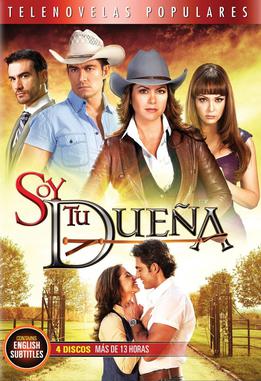
Soy tu dueña is a Mexican telenovela produced by Nicandro Díaz González for Televisa. It is a remake of the telenovela La Dueña, produced in 1995.
La antorcha encendida is a Mexican telenovela produced by Ernesto Alonso and Carlos Sotomayor for Televisa in 1996. It was the last historical telenovela produced by Televisa. The plot tells the Independence of Mexico, with an emphasis on historical accuracy. It was written by Fausto Zeron Medina in collaboration with Liliana Abud. It premiered on Canal de las Estrellas on May 6, 1996, and ended on November 15, 1996.
Te sigo amando is a Mexican telenovela produced by Carla Estrada for Televisa in 1996.
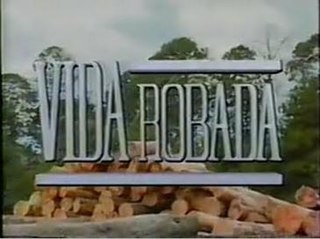
Vida robada is a Mexican telenovela produced by Carlos Sotomayor for Televisa in 1991. It is a remake of 1974 Mexican telenovela Ha llegado una intrusa.
Al filo de la muerte is a Mexican telenovela produced by Emilio Larrosa for Televisa in 1991.
Un rostro en mi pasado is a Mexican telenovela produced by Ernesto Alonso for Televisa in 1989. Based on the Mexican telenovela produced in 1960 Un rostro en el pasado.
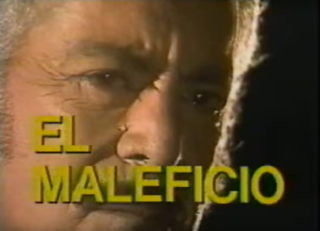
El maleficio is a Mexican supernatural horror telenovela directed by Raúl Araiza and produced by Ernesto Alonso for Televisa in 1983. The telenovela was so successful in 1983 that a sequel was made under the title of El maleficio 2: Los enviados del infierno in 1986.
Angélica is a Mexican telenovela produced by Ernesto Alonso for Televisa in 1985. It is an original story by Marissa Garrido and directed by Sergio Jiménez.

Victoria is a Mexican telenovela produced by Ernesto Alonso for Televisa in 1987. Its original story of Luis Reyes de la Maza, was adapted by Tere Medina and directed by Alfredo Gurrola.
El vuelo del águila is a Mexican telenovela produced by Ernesto Alonso and Carlos Sotomayor for Televisa in 1994–1995. Telenovela based on the Mexican soldier and President of Mexico Porfirio Díaz, from his name had come out the title "Época Porfiriana" or "Porfiriato" during the period of his rule, in the years 1876–1911.
Desencuentro is a Mexican telenovela produced by Ernesto Alonso for Televisa in 1997.
References
- ↑ "El precio de la fama, telenovela de 1987: realizada por Televisa Studios". Alma Latina. Retrieved February 4, 2015.